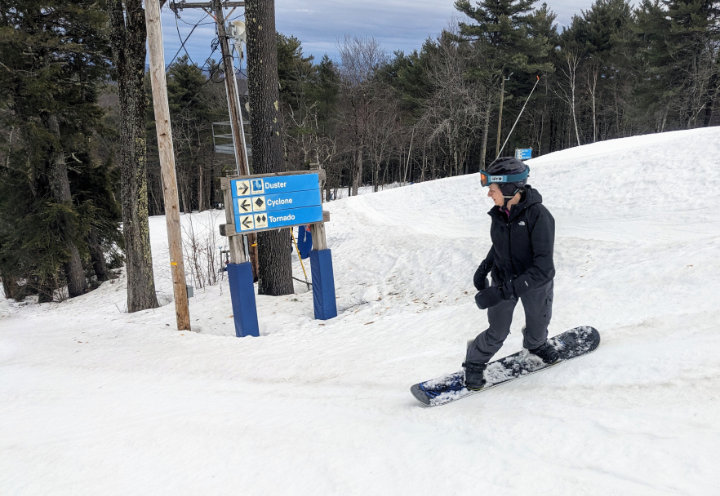Data Mining with Minors
 by Ken Gorrell,
by Ken Gorrell,
Weirs Times Contributing Writer
“Show me your papers!” That old movie line unambiguously established that a character was in a totalitarian state – and in trouble. Whether delivered menacingly in cartoonish German or Boris Badenov Russian, the implication was clear: The state was keeping tabs on you.
A hallmark of such societies, in movies and in real life, is the collection of personal information on citizens. From the government’s perspective, privacy is the devil’s playground. In this effort children make ideal informants: A child’s powers of observation develop more quickly than a moral code or sense of discretion and caution.
The post 9/11 world has been defined in large part by the lengths we’ve gone to balance privacy rights with government’s duty to protect our nation from harm. Civil liberties groups like the ACLU warn about “the growing surveillance society,” where the combination of new technologies and data mining allow government to build an increasingly accurate picture of our private lives over time.
But even back in 1998 (the year Google was founded), a Washington Post article on privacy in the digital age reported that “Today, the store that issues [discount cards] tracks your buying habits in order to offer customized coupons and manage its own inventory. Tomorrow, there is nothing to prevent information that a customer is buying bacon and cigarettes from making its way to an insurance company…”
Now imagine a future where information on how you run your home and raise your children is added to a government database for sale to anyone with the cash…using information provided by your child in a school survey.
In March, middle school students in Fulton, MO, were led by teachers in an activity called “Claim It.” In this live-action survey, students were told to step forward when a statement applied to them. It started innocently enough (“You believe ghosts are real”) but quickly escalated to “You have tried alcohol” and “Your parents are divorced.”
What earned the ire of parents, according to the Fulton Sun newspaper, were statements such as “You or someone in your family has been raped or sexually assaulted,” “You have ever been physically abused by someone who said they love you,” and “You worry or have worried about how your family will pay the bills.” This was an activity conducted in open class, with a teacher requiring young teens to “claim” incredibly personal details of family life.
News stories abound of similarly-invasive surveys given to students across the country. Many states are addressing privacy concerns through legislation, codifying “opt-out” policies where the onus is placed on parents to sign forms limiting participation of their children in surveys dealing with religion, sexual activity and experience, drug use, and parental behaviors. Only a handful of states impose an “opt-in” requirement on schools. “Opt-in” sets a higher bar, requiring a school to have parental consent before a child can participate in such surveys.
Our governor recently signed HB206, establishing “a committee to study non-academic information gathering surveys or questionnaires administered by a public school to its students” and requiring “school districts to adopt a policy regarding student participation in non-academic surveys or questionnaires.” If we are to do right by parents and students, the state should set the higher bar – an “opt-in” policy. Privacy concerns should trump objections by data collectors about the cost, inconvenience, or difficulty gathering data from a statistically significant sample size. The long-term implications of massive government data collection on private citizens are too grave to waive away.
Information collection agencies from military intelligence to marketing companies depend upon building a picture to their “targets” by piecing together data from multiple sources, like using thousands of mosaic tiles to create an image. We can usually avoid marketing traps like discount cards or surveys offering a chance to win a prize, but avoiding government data collection is more difficult. We need to draw a clear line where kids are concerned. Data collection efforts shouldn’t use children as informants against family.
Recent events have shown us that even highly classified data can end up in strange, unprotected places, like private email servers and a lawyer’s thumb drive. If highly-placed government officials blatantly mishandle information deemed to cause “exceptionally grave damage to the national security” (the official definition of “Top Secret”), what privacy expectations can we have about our personal information collected, analyzed, and permanently stored by government and private agencies?
Opt-in should be the only option for schools collecting personal data from children.
Ken Gorrell can be reached at kengorrell@gmail.com.



